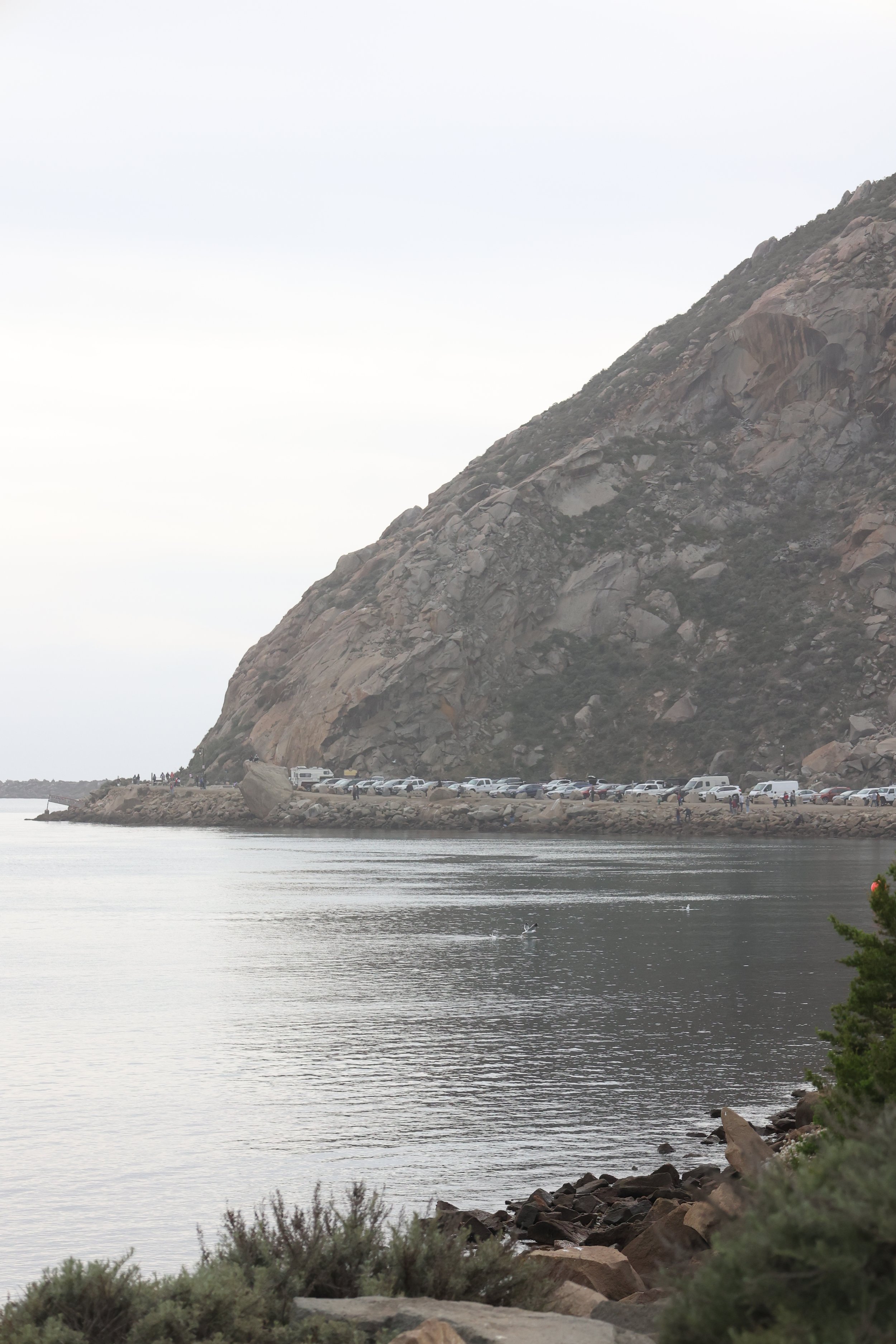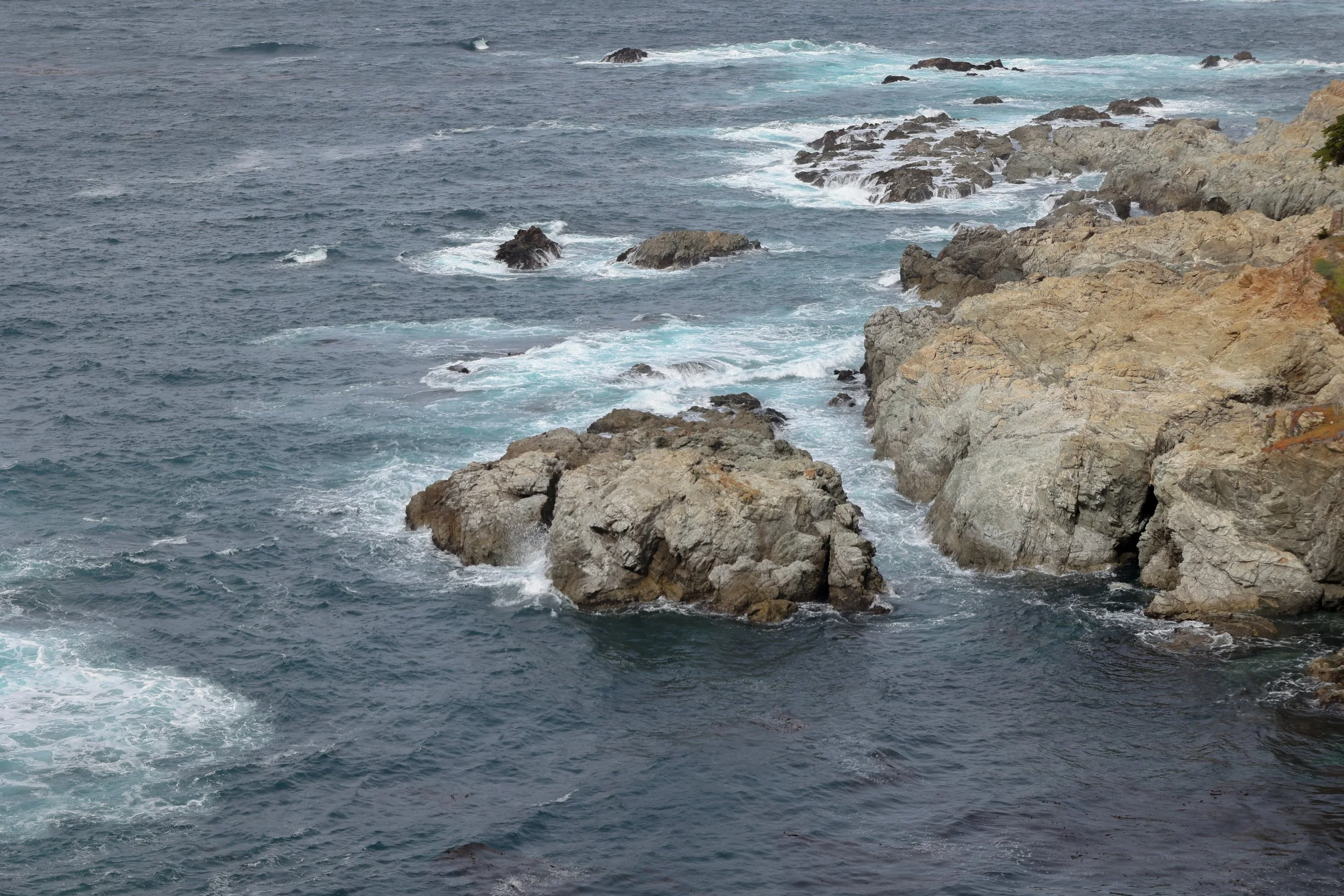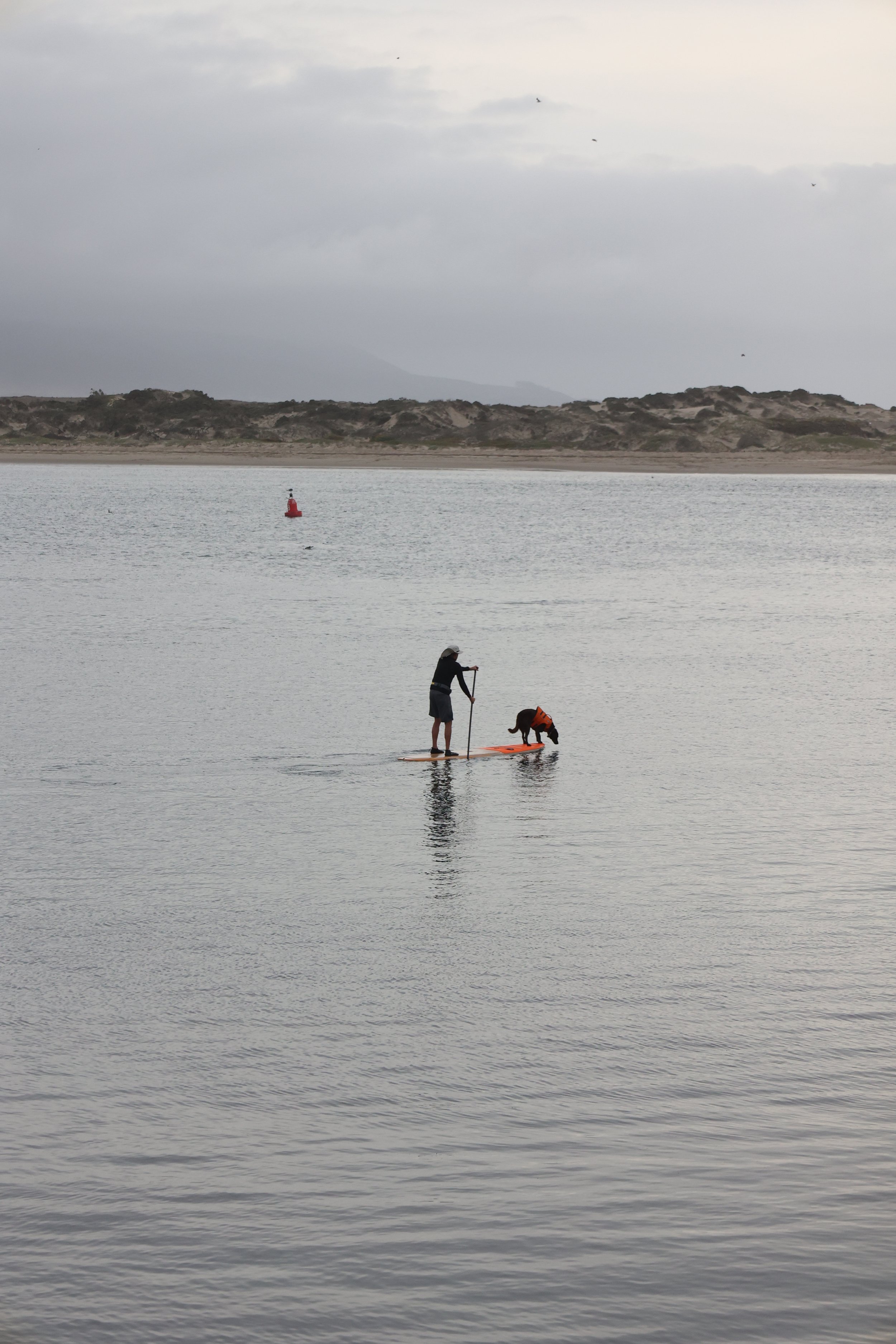The California Road Trip Issue
Conclusions
Seven Angles of Trees
The first word in the thousands of lines in the Odyssey is andra — man. The first adjective is polytropos. He of many turns; tell me about how he fought and loved and lost and changed. Tell me about how his son became a man.
Tell me about Du Fu, hero of Chinese poetry, who in his old age regretted.
昆吾禦宿自逶迤
紫閣峰陰入渼陂
香稻啄餘鸚鵡粒
碧梧棲老鳳凰枝
佳人拾翠春相問
仙侶同舟晚更移
彩筆昔遊乾氣象
白頭吟望苦低垂
-Du Fu; Stirred by Autumn, No. 8
Trans. Zong-qi Cai:
Kunwu park and Yusu lodge are out there in the remote distances;
the shadow of Purple Tower peak enters Meipi lake.
Fragrant rice: leftovers from pecking, parrots’ grains;
emerald wutong trees: till old age perched, phoenixes’ branches.
Lovely ones gathered kingfisher feathers to give as springtime gifts;
transcendent companions shared a boat, moving off again toward evening.
My many-colored writing brush once strove with the climate;
now my white head, chanting and gazing, in despondency droops.
Kunwu Yusu self wandering winding
Zige mountain cloudy enter Meibei
Scent rice peck remainder parrot grain
Plane trees stay old phoenix twig
Good men collect green feathers ask each other
Forever companions same boat late move on
Draw brush past travel dry weather
White head prattle whine bitter low
Yusu Brook winds away from Kunwu;
Purple Tower’s shadow dips into Meipi lake.
Parrots leave shards of rice, so perfumed—
And on plane trees perch phoenixes.
Pretty people court with green feathers
While very good friends sail on.
My brush once traced well the environment,
But now I lower my white head in despair.
We leave Salinas early, well-rested, and in search of coffee, which we’d missed yesterday. We have time to kill, which we’d also missed. This isn’t quite what I’d imagined to be Steinbeck’s Salinas Valley; no pastures of heaven, no sun but mist, but fields, still, stretching out on either side. Rows and rows of spinach and broccoli. Some trees too, maybe avocado.
It’s still a bit chilly as we wait in line outside for coffee; I trust Christina and the others in my car to make good decisions on that, so the chill I ignore. The line seems long but isn’t bad. Besides, we won’t be passing by anytime too soon, and a loyal customer base doesn’t mean that businesses will stay open. I taste shadows of Benkyodo mochi in the air from weeks ago; anko, kinako, blueberry. I sip my café au lait here. I’ll need this for the road. I shouldn’t dwell on memories. Circumstances change. So must I.
Some relevant words pop into my head that sound nice: cordillera, streamlet, pellucid. I roll them around on my tongue, let the air flow from the window into my mouth and around the vowels and back out. Can I feel yet the sweetness as vowels glide?
We continue down the 1. Trees give way to grasses and huge outcroppings of rock in the distance. It will be a long day on the road, but I cannot err. The mist is gone now; the ocean deep blue.
Two and a half years ago, I sat next to Anna as she drove us to Yosemite, as the sun came up in front of us and shone gently on Apple, asleep in the back. Now Apple sits beside me.
Cove, islets, waves. Diver on the rock somehow. Pathlets going down. I wish I could kayak down there. I wish I could skip stones on this water. I can feel the kelp forests in my hands.
昆吾 禦宿 自逶迤
紫閣 峰陰 入渼陂
香稻 啄餘 鸚鵡粒
碧梧 棲老 鳳凰枝
佳人 拾翠春 相問
仙侶 同舟 晚 更移
彩筆 昔遊 乾氣象
白頭 吟望 苦低垂
The sea is not wine-dark. It gets scaly further out, further up, but here, it seems soft as it assaults the rock.
The poet Li Bai once wrote about seeing the Yangtze flow away into the clouds. If I look ahead, the road winds away well traveled, too solid. If I look to my right, I see the ocean, but there is no line at all to follow.
We stop at the Bixby Creek Bridge, all cliffs and columns. The sun is well out now, and I understand the view to be wonderful. The ocean reaches toward us far down and away. There is plenty of greenery. Miranda makes her way down a bit; careful, I want to say. We live on shifting sands.
A meadow is a ways down. There are cows grazing here, all brown and white. A lighthouse sits on a promontory in the distance, shrouded somewhat by mist. I’d like to try the paths up, I say. Bike up, bomb the descents, up again in the good cool air. They remind me of roads running up ridge crests I’ve seen in Hawai’i; the hairpins might be too much effort, which I totally understand.
We’re a long way from my last roadside cows in Taiwan, flicking their tails at mosquitos hounding them in the midday heat on the road shoulder. We’re a long way from Santa Barbara too, and I don’t have the stamina to take more than eight hours, but I don’t want this to end.
Yuzu shies from Kunwu.
Purple shadows touch Meipi lake—
Birds leave small white spots.
Trees, phoenixes. See the young men court.
My friends all go now.
Once my hands could make something nice.
Just over two years ago, I took another trip to the foggy sea, that time with people I knew before and would have liked to know better, that time up north, that time with greenery and spare trees and some cheese along the way.
It was windy, too, on the beach at Point Reyes, but I didn’t mind. I like the cold. There were no good skipping stones, though; only a sharply sloping strand and water reaching out from nothing to nip at me. There must be plenty of shipwrecks hidden out there amongst the shoals and the Farallones. Treacherous waters.
I wouldn’t have been able to see my skips, in any case.
A few days later, I found that I had lost a friend from back home, that place which I thought I’d left behind. She’d gone while we were there, while I watched bare trees disappear into the fog.
Her name was Stella. I met her through music; she was one of the best people I’ve ever known.
I used to write purply, in the hope that vocabulary would paint a canvas vivid. I used to think that I could work to cope with grief. I used to hold that good speech could accomplish much. I used to be able to write what I felt. I used to trust language to hold in between words.
I used to be able to pull all-nighters, to tolerate vodka, to take spice. I used to take long walks in the rain in the dark.
I hope I’ve grown in the last four years.
If I glance in the rearview mirror, I might see my partner back in Berkeley. I miss her.
If I look ahead enough, I’d find Santa Catalina and eleven-year-old me with my Boy Scout troop, eating the sweetest fruit I’d ever had, fresh off of prickly pears. I’d find myself trapped there for a storm with not-so-high winds but, said the resident doctoral candidate we met there, sixteen to twenty knot winds for four hours will produce high waves. He was studying fish stocks.
If I look ahead, I see mist and no oncoming lights. I see more false flats and leafless trees petrified grasping at the sky.
Too peaceful, too picturesque. I want to take my Polish friend here and show her all about. I love this place, love this, whatever this is. I want to share this love.
If I look, I dissolve.
A raptor rides thermals and falls down to rise back up. A few more steps and I can join them.
“Life takes place one hour at a time.”
—Charles Yu, Interior Chinatown
Qu Yuan, the poet, faithful politician, the germ, through suicide, of every dragon boat, took subjective poetic time. Time was subject not to determinations of ripeness or division-making but passions and anxieties. Time for the sake of man and for himself. Time runs so quickly; I’ve lost chances, had others denied me. Time goes. The wind whips on the waves. My music-making will go too. I feel it all slipping away, one hour at a time.
If I crane my neck to the right enough, if I squint enough, I will see a beach on the island of Kinmen, desperately hot and humid in the summer. I will see my grandmother and cousin who calls me 小表哥, younger cousin. If I look just a bit further on from the bunkers here, there is Xiamen, on the coast of the mainland. It’s so close, says my mother, who was born here in Taiwan. Of course, I say.
If I crane my neck to the right enough, I might see a coast closer than I might like.
It is getting chillier, even if I don’t want to admit it.
Yuzu, Kunwu. I’ll fan you with feathers and cook you dinner, then reminisce. To hell with it all.
“‘The cradle rocks above an abyss, and common sense tells us that our existence is but a brief crack of light between two eternities of darkness.’
—Nabokov”
—My friend Claire, in my high school yearbook
Morro Rock was not really on my agenda. I wanted to come on this trip and fade into the background and talk about my observations, but I had to come up with locations on the fly and so I got saddled with this stop.
The drive from the highway is slow; many cars back up a two-lane road. Time’s ticking; we’ve still at least one location, then to meet everyone else, and at this point we’re already more than half an hour behind. Touch and go; I don’t need too long to be able to write a piece. I’m not so sure once I catch a glimpse of the rock.
We’ve come far — six-odd hours — for a giant craggy potato with a side of dried mangoes that I’d gotten at a roadside stand for six dollars yesterday. They’re practically candied. I needed sugar. It’s a big rock. Could get closer, but parking is a pain. Traffic is horrible. We are traffic, I remind myself. It’s still a big rock, interesting for a few pictures even as the light is going, interesting to, I don’t know, geologists, but I’m not one.
Might as well get out, even though I already know that I won’t be writing a piece about this or merely about this. A plaque, paraphrased: there are dangerous waters outside the harbor mouth where every day for many years fishermen have ventured. A factory stands behind us, smokestacks quiet. The clouds have unified again around the sun. A fat squirrel pokes its head out from some rocks by the water; the others are fascinated. It is vaguely spotted. Where does it live? Down there? With the tide? The clouds, arrant robbers, allow some pale fire through.
The water seems fairly still. I climb down and look for skipping stones. Flat, oblong. Three to four fingers wide. There are a few candidates, which I order by least to most promising. First skip: straight in. The angle’s not shallow enough. Adjust. Splash three more. I’m jerking my arm so that the stones spin at an angle now, not parallel to the surface. I lose my motion more. Just not good today, maxing out around two skips. Maybe later around Oceano, or tomorrow, or never.
I turn away. The man and dog drift further out still.
Words: Stephen Yang
Photos: Apollonia Cuneo, Christina Kan






